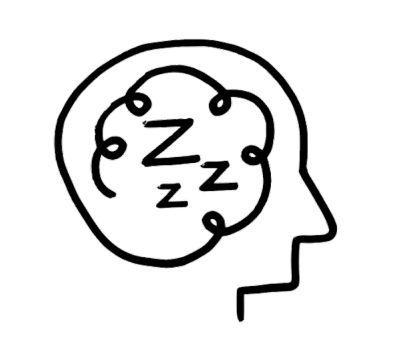What is cognitive behavioural therapy (CBT)?
Cognitive behavioural therapy (CBT) is an evidence-based approach to treating a range of mental health challenges and conditions. If you’ve been looking into therapy, you may have come across therapists offering CBT.
In this article, we’ll walk you through the basics of CBT, including:
- How it works
- CBT strategies
- What it treats
- The benefits and limitations of CBT
- Links to helpful CBT resources.
Scroll down to learn more.
How does CBT work?
CBT is a type of psychotherapy used to treat mental health conditions and challenges. CBT acknowledges that our thoughts, feelings, and behaviour all impact each other.
For example, if you have bad acne, you might avoid socialising. You might feel embarrassed and ashamed about your skin. You might be scared that your friends will judge your acne, so you avoid hanging out with them altogether.
This is an example of how thoughts (that you will be judged), lead to feelings (of shame and embarrassment), and then to specific behaviours (avoiding hanging out).
Equally, this behaviour (avoiding hanging out), reinforces the thought that people will judge you for your acne (because you don’t have the opportunity to prove the thought wrong), and contributes to those feelings (of shame and embarrassment).
At first, avoiding your friends offered a sense of safety. But in the long term, avoidance is an unhelpful coping strategy because it keeps harmful thoughts and behaviours going. How? By not allowing you the opportunity to prove your negative thoughts wrong.
CBT can help in this situation by either:
- Helping you challenge the thought that “my friends will judge me for my acne” so you feel more comfortable going out
- Helping you to go out with your friends, which could demonstrate that your friends don’t actually care about your acne.
By using CBT, we can start to feel better by either changing our thinking, changing our habits, or changing our behaviour.
- The negative spiral
Another important aspect of CBT is the idea of the ‘negative spiral’ that can come from these linked thoughts, feelings and behaviours, and spill out into different areas of your life.
Using our above example, the negative spiral could look something like this:
- You may start to feel lonely, because you are avoiding your friends
- This could cause you to feel guilty for turning down their invitation, and start to think you are not a good friend
- In turn, causing you to think that your friends are upset with you because you are not socialising with them.
These thoughts and feelings can make it even harder to break the cycle and lead you to wanting to isolate yourself even further.
Watch the below video to learn more about how CBT works and whether it might be helpful for you.
CBT strategies
There are a range of different strategies and techniques used in cognitive behavioural therapy. A CBT therapist will work with you to find the best approach for you, which will often involve a combination of multiple strategies. Here are some examples of how they can work.
- Challenging core beliefs
Core beliefs are the fundamental beliefs we hold about who we are, which are developed over time through our experiences. Core beliefs aren’t usually something we think about very often (or are even aware of) but they can have a big impact on our lives.
For example, if you had parents with high expectations, you may have developed the core belief that nothing you do is good enough, or that you are not good enough. This belief could have a negative impact on your life in all sorts of different situations. For example, you might:
- Feel insecure in relationships or friendships because you fear you’re not enough for the other person/people
- Feel a need for things to be perfect, or put huge pressure on yourself
- Avoid taking on extra responsibility or trying new things because you fear making mistakes
- Avoid asking for feedback, or try and do things on your own because you don’t want others to know you need help.
At a subconscious level, you might fear that these things would confirm your belief that nothing you do is good enough, or you might want to avoid those feelings of ‘not being good enough’ you had in the past.
CBT based therapy can be particularly helpful in identifying what some of your unhelpful core beliefs may be, how they might be affecting you, and working on ways you can change them.
- Exposure therapy
- Behavioural experiments
What happens in a CBT session
CBT therapists will work with you to understand what challenges you would like to work on, and what you would like to achieve. They will then take your circumstances into account, and use one or more different strategies to help you.
They might:
- Help you to understand the link between your thoughts, feelings, and behaviours
- Help you recognise patterns of thinking and behaviour
- Help you identify and challenge core beliefs
- Design activities, behavioural experiments, or homework for you to practice between sessions
- Help you learn new behaviours and techniques you can use.
Together, they will help you find the approach that works for you. It’s ok to tell them if something feels too much - while some things may feel challenging, a good therapist will make sure you only take on what you’re ready for.
What does CBT treat?
CBT treats mild mental health challenges as well as more serious conditions.
CBT can be effective for the treatment of:
- Anxiety, stress and panic attacks
- Specific phobias
- Depression
- Post-Traumatic Stress Disorder (PTSD).
- Self-harm
- Eating disorders
- Sleep problems
- Obsessive-compulsive disorder (OCD)
- Substance misuse
- Anger problems.
Whether you have a diagnosable mental health condition or not, CBT can help you cope better with life’s challenges.
What are the benefits and limitations of CBT?
It’s important to choose a therapeutic approach that fits you. Understanding the benefits and limitations of CBT can help you decide whether you’d like to give it a try.
- Benefits of CBT
- CBT can be as effective as taking medication. This makes it a great drug-free alternative for treating mental health conditions
- CBT will give you practical and helpful strategies that you can use in everyday life to help you cope better with future stresses and difficulties
- The strategies you learn through CBT can stay with you forever. You can tap into these skills any time you face difficulties again in the future
- CBT is a short-term, goal-focused treatment that is usually completed within 12-20 weeks.
- Limitations of CBT
Can I try CBT on my own?
CBT works well as a self-help strategy but for best results, you should consider working with a therapist. A therapist can give you extra guidance and support to break stubborn patterns or habits that may be hard to break on your own, or that you may not be aware of.
You can click below to learn:
- How to find the therapist that's right for you
- What to expect in your first therapy session
- How to get a Mental Health Treatment Plan from a GP
That being said, if you’d like to test CBT out, you can try this CBT-based thought challenging activity or download a CBT app like MoodGym.
Another option is to try a CBT book such as CBT Made Simple, which gives a detailed explanation of CBT, along with strategies you can apply for yourself. There’s also CBT in 7 weeks, which is a step-by-step workbook with prompting questions and activities. Both books are written by licensed psychologist Seth Gillihan.










